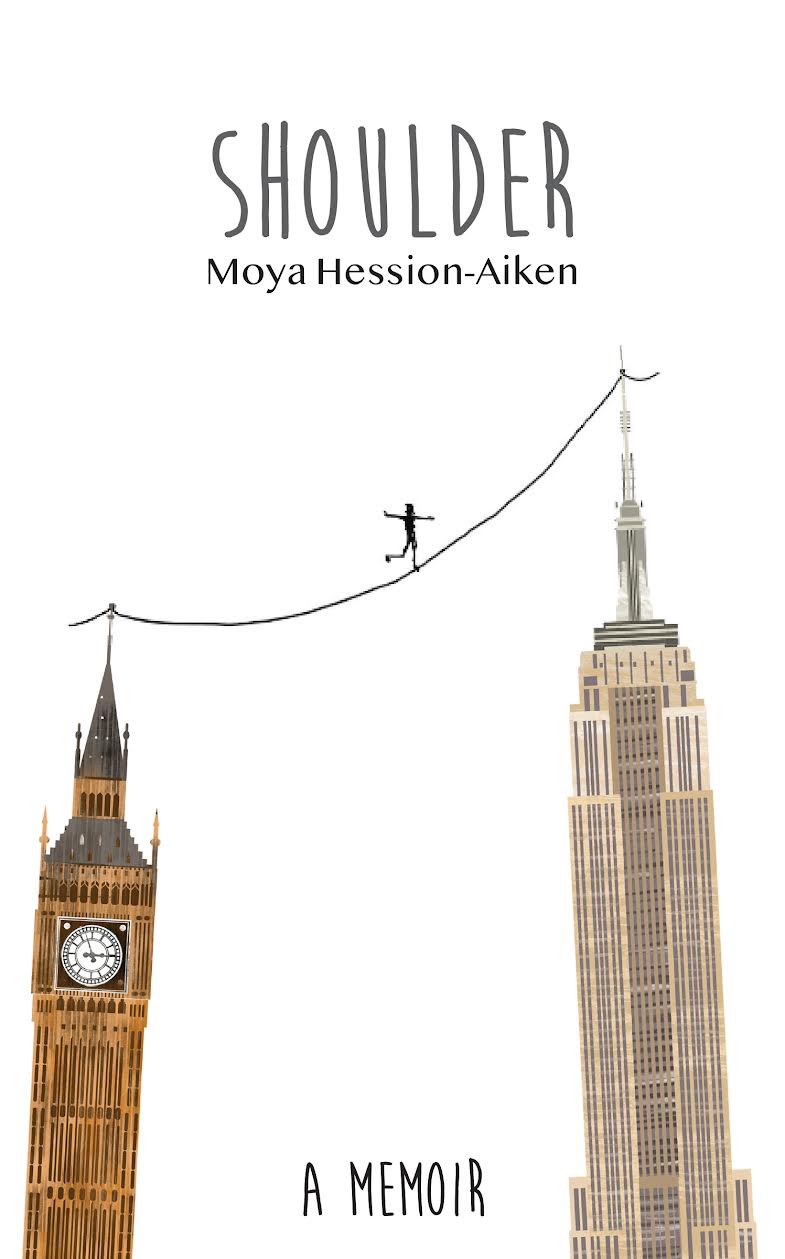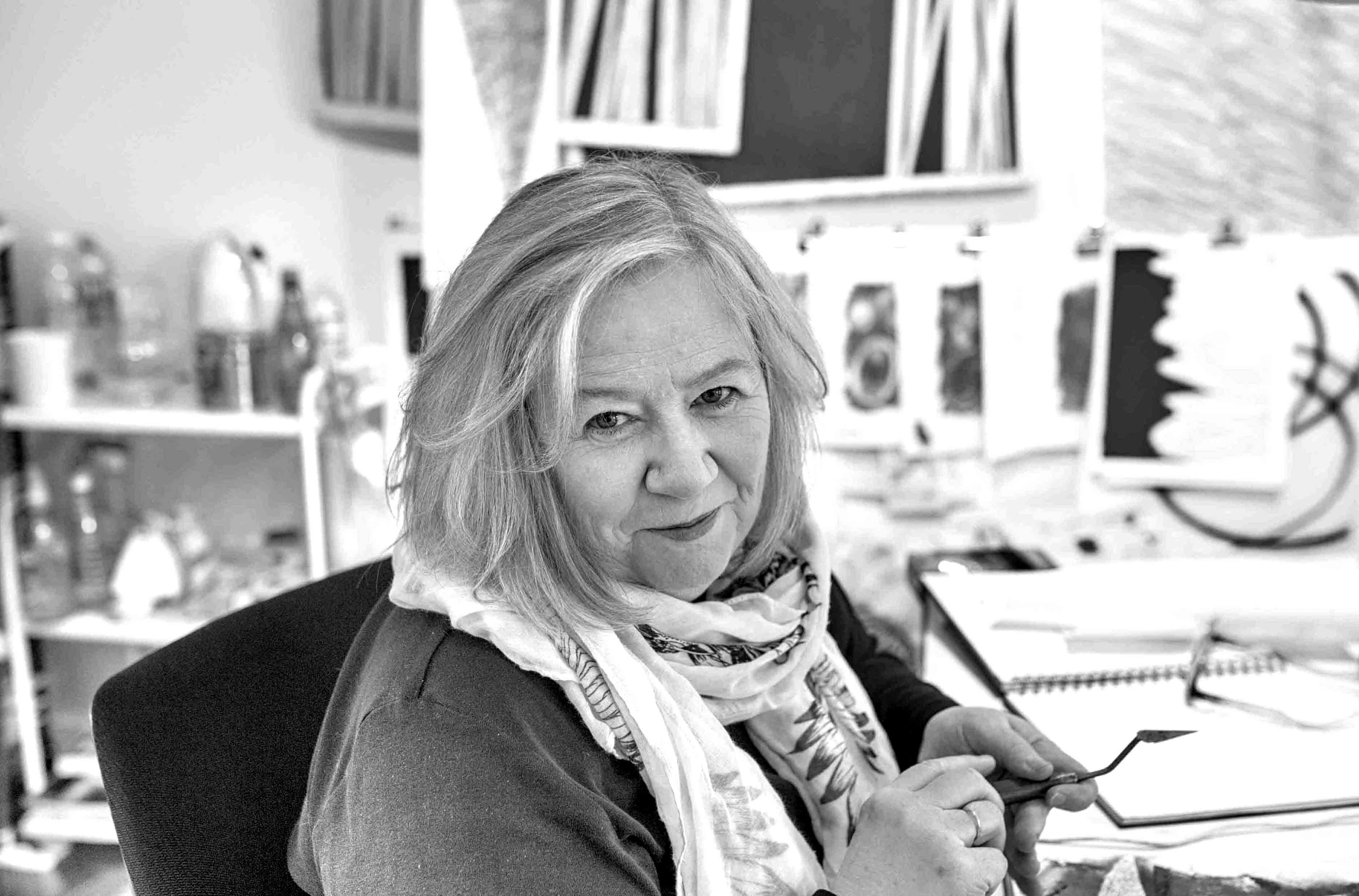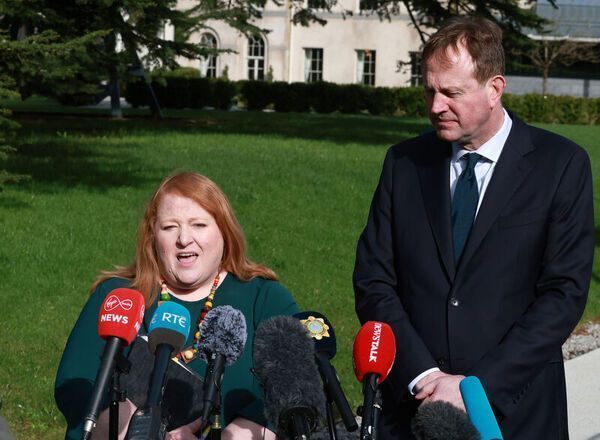“There’s an Irish saying that if you ever want to return to a place, look back over your shoulder when you’re leaving it. So, walking out through the gates of the Marist high school for the last time I hold my head rigidly facing forward, not wanting to risk being dragged back into the hell hole I’ve inhabited for the past eight years.” So writes Moya Hession-Aiken in “Shoulder: A Memoir.”
“Me-mum has one final gesture for Sister Sheila, though. She sends flowers with a card inside that reads: ‘Thank you for all you did for Mary. And you know what that was.’”
To paraphrase the author, there are different types of Irish in Wythenshawe: those who say “God be willing” at the end of most sentences; a second type genuflect when passing every Catholic church and cross the road when they encounter a Protestant one; third, those who loudly show up to midnight Mass blathered out of their minds; fourth, the Professional Irish Catholics who have shamrocks emblazoned on everything from the welcome mat to the tea cups to the dish towels; and then there’s the group the Hessions belong to: “Despite the huge statue of St. Patrick in our front window, we are the ‘go about your business in as quiet a way as possible discreetly bow your head when passing the Catholic church and do not bring attention to yourself in this anti-Irish climate’ type of Irish Catholics.”
Wythenshawe was a welcome change when it was an overspill from the city’s slums in the 1920s, but a sad deterioration has occurred over time in what is the largest council estate in Europe: “12 miles of back-to-backs, endless streets with uniformly drab-colored doors, all of it isolated from the great metropolis of Manchester.”
It doesn’t help the Hession cause that the lowest rung of the Wythenshawe ladder is a place called Benchill and “our little corner of paradise is smack in the middle of it.”
Me-mum lobbies with the council to get out, and her persistence pays off in time: she gets to move to the nicest part of Wythenshawe. But Moya’s dreams are so much bigger. After studying art at Manchester Polytechnic (now Manchester University) and graduating for a first-class honors degree in textile design from London’s Central School of Art and Design (now Central St. Martins), she heads to New York.
There, thanks to contacts in the Irish community she lands a job at a very nice restaurant. It’s in at the deep end, though. “What’s a London broil? Surf and turf? Salisbury steak? Pot pie?” She has many questions, but her compatriots are no help. “It’s bad enough to be Irish in England,” Hession-Aiken writes. “But to be Irish with an English accent in New York with a crowd of bitchy Irish girls is even worse!”
The young undocumented immigrant eventually finds her way into the exciting world of the fashion industry and then, after a few years, she’s working at MTV and winning an Emmy. At MTV, she encounters Bill Aiken, whose reputation is "the nicest guy working in television," and romance blooms. They discover they’ve much in common: both are practicing Catholics, are the youngest in their families and they adore their parents. What’s more, Bill’s grandmother came from five miles from Me-dad’s home place in Roscommon. After a whirlwind romance, they marry.
Moya gives birth in 1990 to Liam, who is like his father in every way, down to “thank you” being his first words. They are considering a second child, when tragedy strikes.
Hession-Aiken, a fine artist whose work has been shown at galleries throughout the Northeastern U.S., writes with a beautifully direct and simple style, which is enhanced in “Shoulder” by her use of the present-tense, allowing her love for her husband, her son and her parents to shine through.
Kirkus Reviews described “Shoulder” as a “moving story of love and loss by a gifted writer.” It shows Hession-Aiken to be a “skilled storyteller, supplying anecdote after anecdote; some are very funny, others are heartbreaking, and still others are infuriating, but all are infused with a sense of defiance.”
Moya Hession-Aiken
Date of birth: Feb. 24, 1957
Place of birth: Manchester, UK
Spouse: Bill Aiken, television producer, deceased 1992
Children: Liam Aiken, actor
Residence: Essex, Conn.
Published works: “Shoulder: A Memoir”
What is your writing routine? Are there ideal conditions?
My routine begins with writing in my studio for a few hours. Then as a treat to myself I spend the rest of the day painting, often an image from the passage I've just written.
What advice do you have for aspiring writers?
Write about what you are familiar with. Nothing is set in stone. Get your thoughts down, revisit, then decide if you are happy with it. If not, change it!
Name three books that are memorable in terms of your reading pleasure.
“In Cold Blood” by Truman Capote: I am a huge true crime fan and this is the greatest one of them all. “The Kite Runner” by Khaled Hosseini: Beautifully written. A truly magical narrative.
“Angela's Ashes” by Frank McCourt: My father would tell the same stories of his growing up in Roscommon and no matter how many times I heard them I always got butterflies in my stomach. Even though Frank McCourt's stories are much darker and the language much stronger (I never heard my father curse) I was mesmerized by Frank's gift of transporting me to a time and place. It felt strangely familiar purely because of the cadence of his tales yet far removed from my family's past.
What book are you currently reading?
“Our Lady of the Highway” by Hal Hartley.
Is there a book you wish you had written?
“A Fine Balance” by Rohinton Mistry. I love the way this book carries you through the lives of four individuals. The descriptions took you into these people's lives. It deals with survival, one of the themes I most associate with my own life story.
If you could meet one author, living or dead, who would it be?
Alan Bennett. I love his brilliant observations. He can go to the butcher's and see something and talk about it for ten minutes and it's all captivating. He can make a story out of folding a newspaper.
What book changed your life?
As a child, we had two books in our house besides prayer books and the bible. It is a mystery where these books came from. They were both pictorials. The first was showcasing Britain's crown jewels, which was so strange as we were a staunchly anti-royalist Irish-Catholic family.
The second book was the one that left an impact on me to this day. It was a pictorial guide of the biggest Hollywood movie stars from the 1950s in full-on technicolor. The beautiful, tanned skin, crystal clear eyes, perfect hair, and dazzling white teeth. This, coupled with movies I watched at the local cinema, ignited my dream of living in the USA.
What is your favorite spot in Ireland?
Sky Road, Clifden in Connemara. Driving along the road and reaching the crest where you can only see the water, feeling as though you are about to crash into the ocean. The Clifden car wash.
You're Irish if...
You keep a connection to your Irish heritage alive. It's a choice. We are all here as the result of the bravery and resilience of our forebears.









